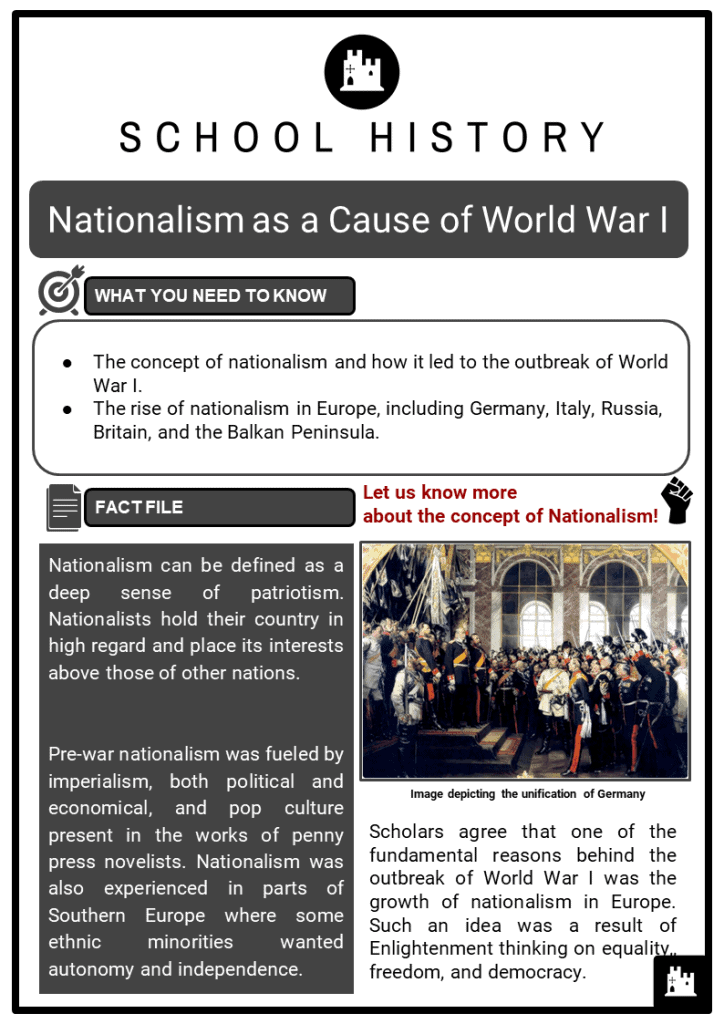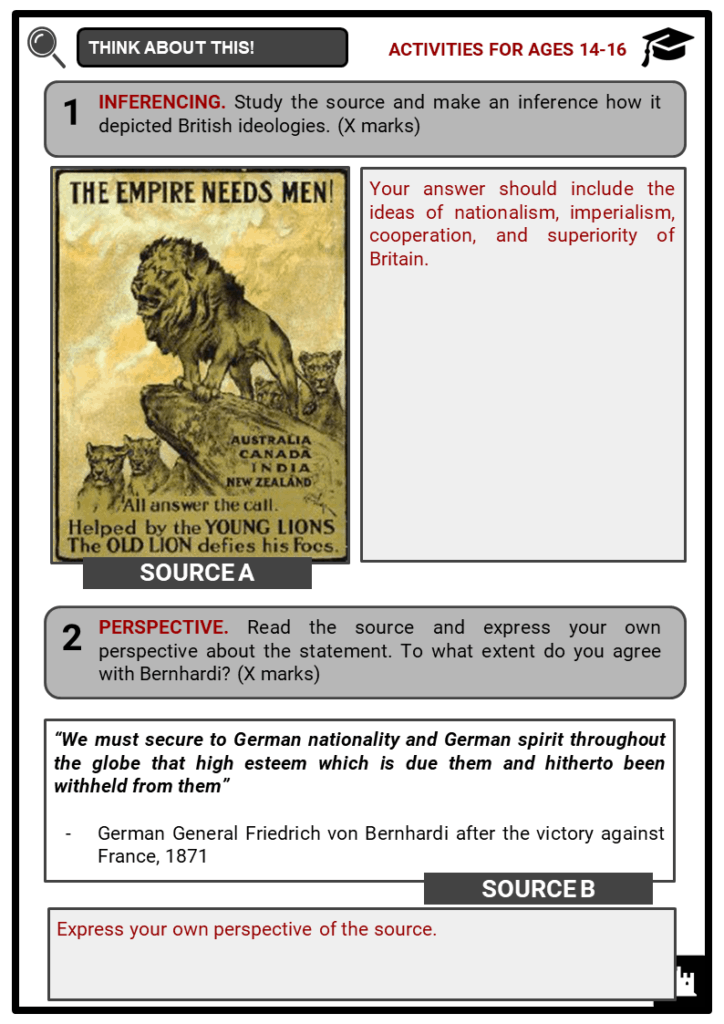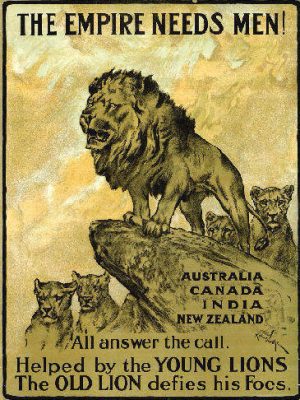Describe the Role Played by Nationalism in World War 1
The rise of nationalism However strong nationalistic feelings no doubt fuelled by imperialism began to creep into Europe in the years leading up to the First World War. Nationalism is the act of perceiving our own nation as bettersuperior than other country.

Nationalism As A Cause Of World War I Key Facts Worksheets
Their countries and show their loyalty.

. Nationalism definition an extreme form of patriotism and loyalty to ones country. Of course it was a different time when honour and doing ones duty was still very much a thing but nonetheless there is no doubt that WW1 nationalism also played its part. Nationalism was an intense form of patriotism.
Nationalism convinced the people of Europe that their own nation could take on any military threat. The Great Powers which included Great Britain Germany France Austria-Hungary Russia and the Ottoman Empire were forced by Nationalism to respond and adapt. The four main factors that caused WW1 Militarism alliances Imperialism and nationalism Militarism problems.
In 1918 Germany lost the First World War. As a result nationalism played a key role on why world war 1 started in the first place. It was built between 1891 and 1916 to connect Moscow with the Far-East city of Vladivostok.
Nationalism caused a reduction in trade. In the Russo-Japanese War. It prompted European nations to break all ties with one another.
Nationalism in Germany Germany was united in 1871 as a result of the Franco-Prussian War and she rapidly became the strongest economic and military power in Europe. They ruled over 11 different nationalities all of whom wanted their freedom to be their own. Advertisement Answer 0 LREH Answer.
Nationalism is an extreme type of patriotism or allegiance to ones nation that manifests itself in many ways. Nationalists overestimate the significance or qualities of their native country elevating the interests. Nationalism began as a unifying force demanding nation states to come together.
Nationalism caused countries to stop the alliance system. This emergent nationalism can be linked to the application of Darwinian ideas to human society. Which describes the role nationalism played in causing World War 1.
During world war I Germany initiated their war due to this feeling of superiority toward other European nations and perceived their country as the rightful ruler of the European continent. -is a role nationalism played in the outbreak of World War I. Shortcomings contributed to Russias defeat in the war -- it was a single track which could only.
This vitally shaped international relations in the years leading to the Great War. It fueled rivalries between European nations. Nationalism led to the outbreak of the War when countries wanted to show themselves as.
Nationalism convinced the people of Europe that their own nation could take on any military threat. What role did nationalism play in the outbreak of World War I. Because of the assassination of Archduke Franz Ferdinand Austria-Hungary blamed Serbias government for the attack and.
If in Western Europe the nation states emerged through recurring interstate wars over centuries the majority of the worlds nation states came into being through a different route in the twentieth century suddenly and in successive waves via. Nationalism was a powerful force in early twentieth-century Europe and it played a crucial role in the outbreak of World War I. Nationalists place the interests of their own country above the interests of other countries.
The First World War 1914-1918 strengthened these feelings of nationalism across Europe as nations were pitted against each other. Nationalist groups also played a major role in the weakening of the Ottoman Empire in Eastern Europe. World History 1 Answer aielliot Jul 23 2016 The rise of Nationalism in the Balkans led directly to the assassination of Arch Duke Ferdinand by a Serbian Nationalist which triggered the series of events the started World War 1.
Militarism alliance systems and imperialism. The Trans-Siberian Railway is the longest railway in the world. In fact historians consider it to be one of four main long-term causes of the war along with.
Nationalism developed into a phenomenon where people with shared cultural religious and ethnic heritage believed in a perceived superiority to other peoples. What role did nationalism play in World War 1. Nationalism led to a new era of peace negotiation.
Nationalism in WW1 was mainly in the Austria-Hungary empire. Also how did nationalism play a role in the start of World War 1. What role did nationalism play in the outbreak of World War I.
It led to revolution against Russian imperialism. Nationalism was one of the main causes of World War I which began in July of 1914 following the assassination of Austrian Archduke Franz Ferdinand. Nationalism played an integral role in the outbreak of the First World War.
Countries with nationalist views celebrated their culture and achievements and put their interest above other nations. Nationalism was a particularly important cause of World War I due to several key factors. Nationalism caused countries to stop the alliance system.
It united Europe against the Ottoman Empire. Many people within Germany including Adolf Hitler found this loss very difficult and. It is much easier to recruit an army of patriotic men who are convinced they are fighting for the right cause and who believe they are going to fight in a war which they cant lose.
It was built under the supervision of the Russian government in particular Czar Alexander 3 and Nicholas 2. It was this intensified form of nationalism that led to the start of World War I through the assassination of Archduke Franz Ferdinand in Sarajevo in June 1914. A third topic is the role of war in the transition from a world of empires to one of nation states.
From 1871 to 1890 Germany wanted to preserve her hegemony in Europe by forming a series of peaceful alliances. The rise in nationalism intensified the rise in antisemitism which had also been growing since the Enlightenment. May be regarded as one of the causes of the First World War.
Nationalism affected world war one because each individul country was trying to prove that. A major contributing factor to the tension between great powers that led to the outbreak of the First World War was called Nationalism. The rise of nationalism thus challenged the political order throughout Europe.

Nationalism As A Cause Of World War I

No comments for "Describe the Role Played by Nationalism in World War 1"
Post a Comment